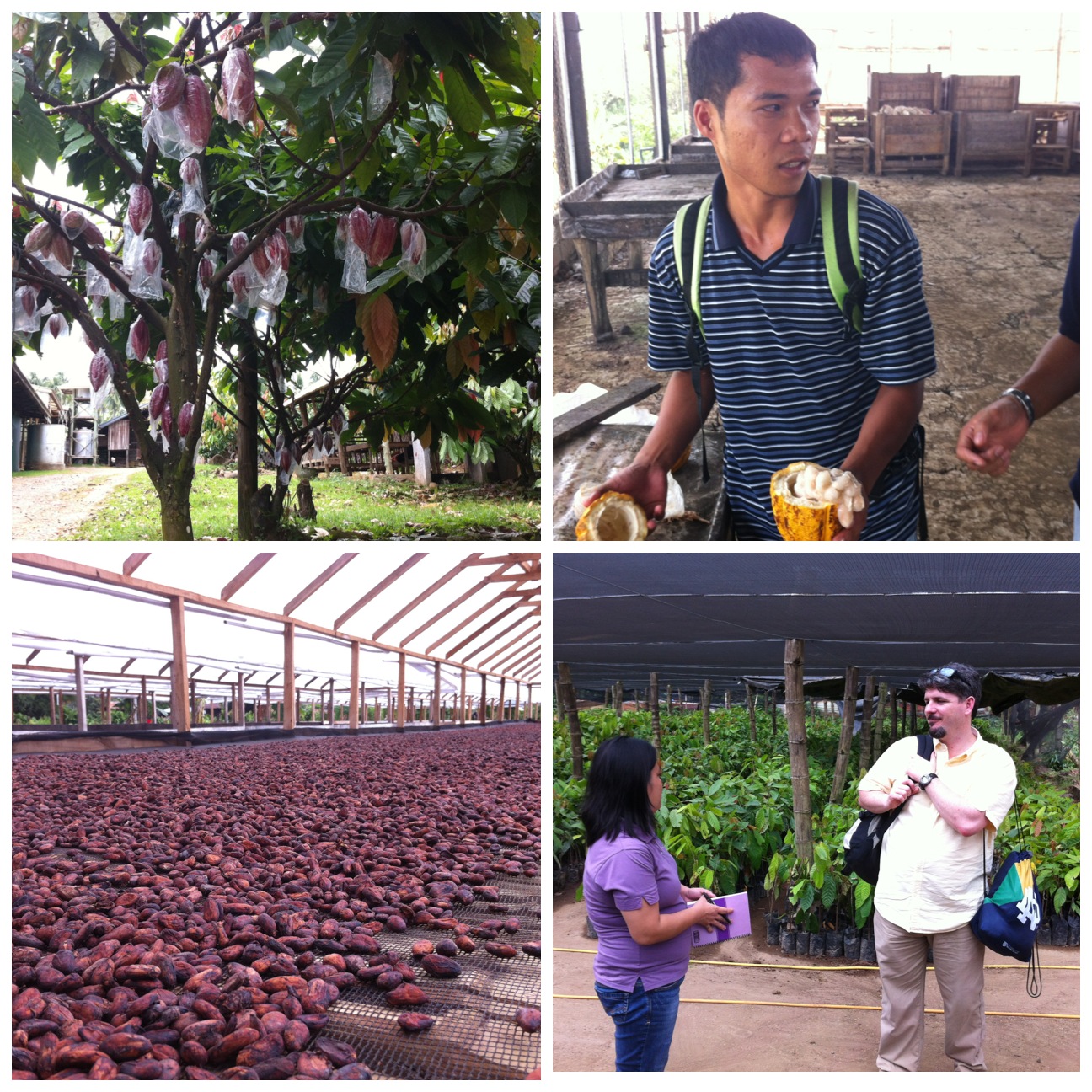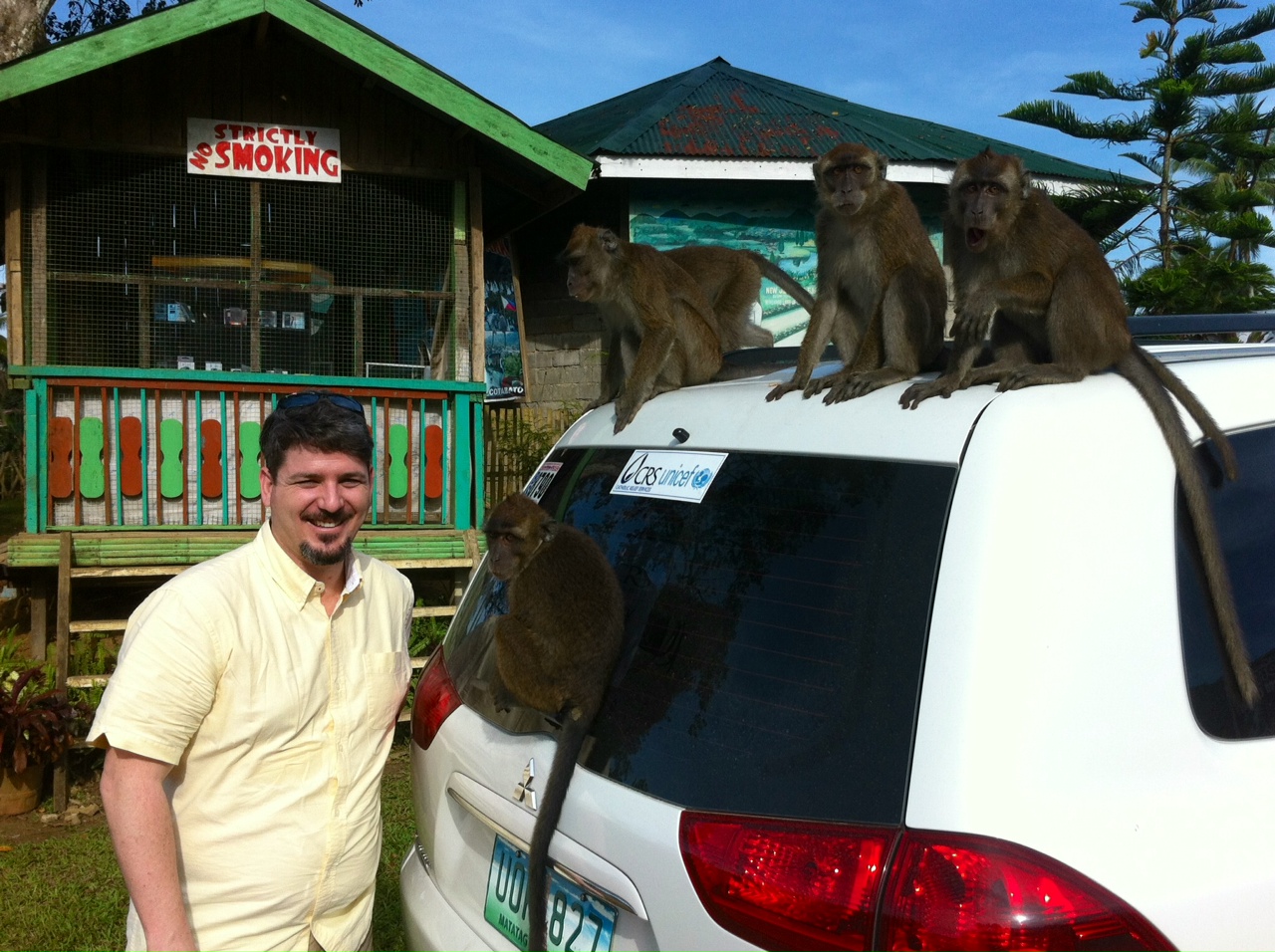Half of the team continued to explore Mindanao today, traveling from Kidapawan in central Mindanao to Malaybalay in central northern Mindanao. The team had three interviews today, all of which centered on cacao production.
We met with Puentespina Farms, where they are growing 24 hectares (~59 acres) of cacao trees. In addition to their own farming, the farm has collaborated with a development project of Mars to provide technical training to new cacao farmers or for farmers seeking to rehabilitate their existing cacao trees. The area surrounding Puentespina used to be a major cacao region for several multinational corporations but political changes in the 1980s caused many corporations to cease operations; however, many of the trees remained and some farmers have sought improved productivity for their cacao trees. At Puentespina we saw cacao trees, stations for breaking open cacao pods, fermenting boxes, and drying beds; in other words, all of the stages necessary to prepare dry cacao beans.

Clockwise from upper left: Cacao pods are covered in plastic to repel insects, a cacao technician shows us the wet beans inside a cacao pod, cacao solar-drying beds, Mike Kinsella (MBA) speaks with a rep. from Kennemer Foods in front of cacao seedlings.
Later we met with Kennemer Foods, a consolidator of cacao. Kennemer purchases wet cacao beans from local farmers and then ferments and dries the beans. In addition to the post-harvest production, Kennemer also provides farmers with cacao seedlings to encourage the proliferation of cacao. They send technicians out to new cacao farms and encourage farmers to sell their product back to Kennemer when the trees begin to bear fruit.
Finally, we visited a business venture associated with a coffee cooperative in Bukidnon province. Kaanib Foundation, a partner of CRS, has organized a group of 1,000 women to provide coffee for a storefront that is brewing a blend of Robusta and Arabica beans. Most of the domestic coffee market in the Philippines is comprised of instant coffee. However, this specific venture buys green coffee from their members, roasts the coffee in their storefront (with a roaster than was granted by the national government), and sells cups of brewed coffee as well as packages of ground coffee. The business is growing and adapting, trying to find a niche in the instant coffee-dominated market.
We also carved out some time to stop by a community where humans and monkeys live in harmony. No really, a bunch of monkeys live in the house of the community leader.
The rest of the team was in Luzon today and their adventures and learnings will be posted to the blog in the days to come.
